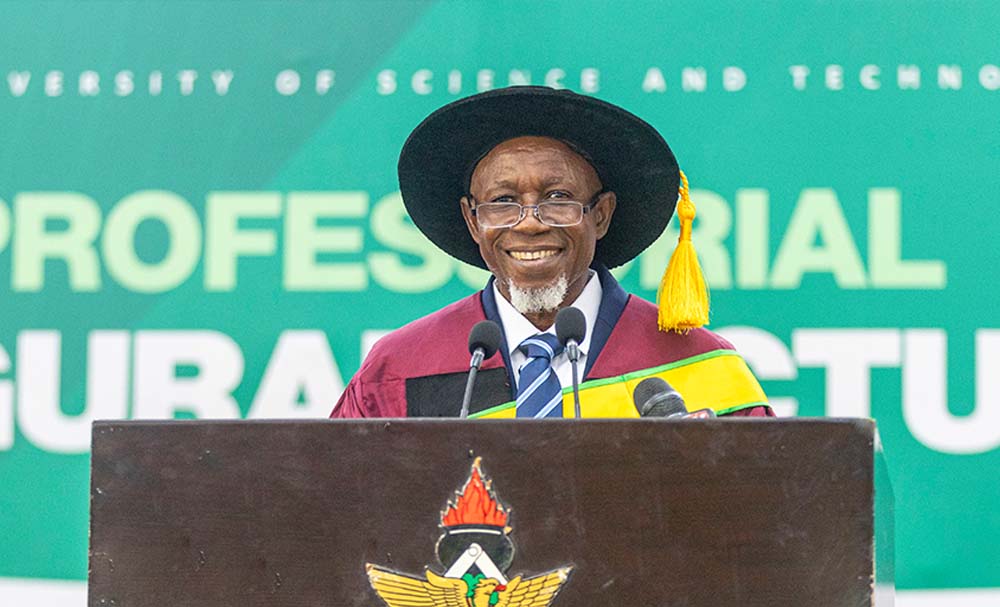Professor Mohammed Hadrat Yusif of the Department of Economics at the Kwame Nkrumah University of Science and Technology (KNUST) has called for closer collaboration between the Bank of Ghana (BoG) and academic institutions to promote innovative, evidence-based reforms to Ghana’s monetary policy framework.
Speaking at his Professorial Inaugural Lecture, Prof. Yusif emphasised that partnerships between the central bank and research institutions like KNUST are essential for developing policies that reflect Ghana’s specific economic conditions.
“A strong research partnership between the Bank of Ghana and universities like KNUST is not just desirable , it is necessary. This is how we ensure that policy decisions are not only sound but also contextually relevant,” he said.
The lecture, delivered under the theme “Monetary Policy in Ghana: Revisiting the Tobin’s Model,” traced the trajectory of Ghana’s economic management since independence and drew comparisons with peer nations such as South Korea and Malaysia.
Prof. Yusif observed that while those countries have achieved rapid and sustained development, Ghana continues to struggle with macroeconomic instability, high inflation, and unsustainable public debt.
“Ghana’s monetary policy has failed. Inflation is high, debt levels are unsustainable, and the infrastructure needed for sustainable development remains inadequate,” he said.
Prof. Yusif argued that despite the establishment of the Bank of Ghana in 1957 to manage price stability, control money supply, and stabilise the exchange rate, the country’s monetary policy has been hampered by structural weaknesses and political interference. He blamed much of the policy failure on what he described as the Ministry of Finance’s dominance over the BoG.
“The Bank of Ghana should be allowed to operate free from political interference. Monetary policy must be compatible with the broader macroeconomic goals of the country,” he stressed.
Using data to support his claims, Prof. Yusif highlighted how Ghana’s domestic debt-to-GDP ratio increased from 35% in 2016 to 90% in 2024, while external debt rose from 20% to 50% over the same period.
To address these challenges, he proposed a series of reforms including a transition from inflation targeting to nominal GDP targeting, a review of the Fiscal Responsibility Act (2018) and the Bank of Ghana Act (2002), and significantly greater investment in research and development.
He also underscored the role of public-private partnerships in addressing the country’s infrastructure deficits and called for responsible practices in gold and cocoa production, two key sectors with significant growth potential.
Prof. Yusif advocated for stronger support for small and medium enterprises (SMEs), particularly within the framework of the Africa Continental Free Trade Area (AfCFTA), which he said could be a game-changer for Ghana’s economic transformation if well-leveraged.
| Story by Edith Asravor (URO) | Photos by Emmanuel Offei (URO) | |

















